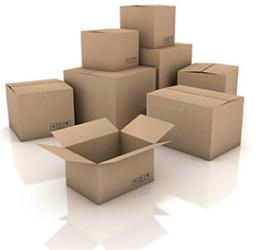A list of must-dos before relocating.
TWO MONTHS BEFORE MOVING
Select your move date. If you intend to use a mover, get estimates from moving companies. If you plan to go it alone, check into truck rental costs. Reserve mover or truck.
Simplify your move by getting rid of clutter now. A good way to start is by looking through storage areas of your home and throwing away, recycling or donating anything you don’t plan to take with you.
Create a file to store all your moving documents. This way, your estimates, receipts and other important forms will be organized and handy.Ask your medical professional for referrals, and gather all medical records. To protect these important documents, consider carrying them with you when you move.
If necessary, make storage arrangements and arrange for travel accommodations.
ONE MONTH BEFORE MOVING
Fill out necessary change-of-address forms with your local post office.
Begin packing items you won’t need until after the move.
Remember to clearly label all boxes to prevent confusion later.
Transfer school records.
Contact utility, telephone and cable companies to schedule disconnection at your old house. Arrange for connection at your new home.
Discuss the move with your insurance company to determine what will be covered.
If you have pets, now is the time to make arrangements for their move. Talk to your veterinarian for advice on traveling with your pets.
Arrange for antiques and other valuables to be appraised. Make a list of all valuables to keep in your moving file. Order packing materials and carefully pack valuables yourself. Always carry passports, credit cards, jewelry and other valuable items yourself.
Begin using up food and other items you won’t be taking when you move.
If you are moving to a different state, arrange for your vehicle registration to be transferred.
TWO WEEKS BEFORE MOVING
Transfer bank accounts. Consult your bank’s policy on safe deposit boxes to determine when to transfer valuable items.
If you have children, arrange for childcare during the day of the move.
Prepare electronics to be moved and back up all data.
Take your car to a service station to prepare for the move. Remember to take necessary precautions if you are moving to an area with a different climate.
Check to confirm your new home is available, and reconfirm plans and contact information with the moving company.
ONE WEEK BEFORE MOVING
Make sure to label all boxes to indicate contents and the room they should be taken to in the new house.
Create a travel kit to keep yourself organized on the big day. Include your checkbook, credit cards, ID, toiletries, paper plates and cups, bandages, aspirin, toys for the kids and other important items. Pack clothing and other personal items in a suitcase.
If you are taking medication, transfer prescriptions and ensure you have enough medicine to last through the move.
Send change-of-address cards to friends and family.
THE DAY BEFORE MOVING
Confirm travel arrangements, and double-check the arrival time of the moving company.
Pack items that will be needed immediately at the new house in the same box. Clearly label the box to indicate it should be loaded last.
Make sure you have cash or traveler’s checks to use during the move and to pay the movers.
MOVING DAY
Be sure the moving company can reach you. It’s a good idea to have someone at the old house to answer questions.
Walk through the house with the foreman to answer any last questions. Read the inventory form carefully before signing it.
Do one final “sweep” after items have been moved to ensure nothing is left behind.
TEN MOST-OFTEN-FORGOTTEN ITEMS
Vital records. Having up-to-date records is crucial, so be sure to contact your doctor, dentist, veterinarian or other healthcare provider to ensure your records and prescriptions are properly transferred. Also, take your child’s official school records with you.
Favorite things. Make sure to collect all items of value before moving. Is there money hidden in your house? Jewelry stored in a safe deposit box? Be sure to personally carry all valuable items with you when you move.
Can I get your number? Take your personal address book and the phone book for your old community with you when you leave. You never know whom you’ll need to contact down the road or whether you’ll remember their phone numbers.
Loose ends. Did you leave your winter coat at the cleaners? Are you still a member at the local gym? Just found that long-lost library book? Be sure to tie up all loose ends with local businesses before leaving town.
Return to sender. Don’t forget to file change-of-address forms with the local post office. Also, write down your new address and carry it with you in case it slips your mind.
Clean sweep. Before saying “so long” to your old home, clean it one last time. Set cleaning supplies aside for last so you can leave your old house in good condition.
Open and shut. Remember to leave the garage door opener behind. Once you’ve moved out, accidentally keeping it will prove useless for you and frustrating for the new owner.
Planning for pets. Boxes and furniture can easily go on a truck, but what about your four-legged friend? Don’t forget to make travel arrangements for pets because most moving companies cannot transport animals.
Money matters. In order to have money on hand when you arrive in your new community, set up a checking account before making the move. Also, remove important documents and items from your current bank’s safe deposit box.
The key element. Before leaving, hand over all sets of keys to your old home’s new residents. This includes hidden keys and sets left with neighbors or friends for emergencies





